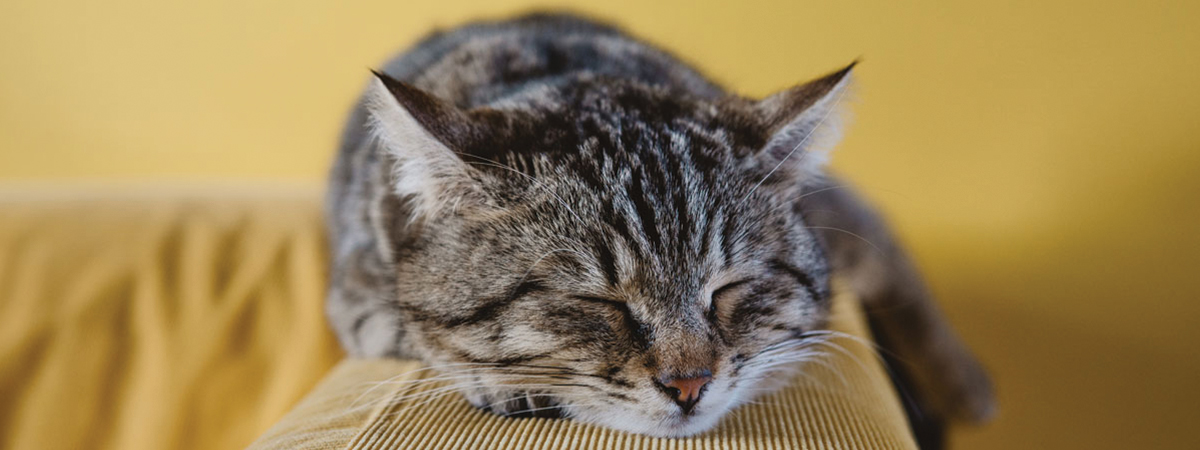
This article is contributed by guest writer, Emily Parker (author of Catological)
Ten Reasons Senior Cats Rule
Have you had an older cat returned to you through PawBoost? If so, congratulations! As the owner of two precious felines, I’m thrilled for you! By reading this post, I believe you’ll cherish your kitty even more.
Or, perhaps you’ve arrived at this article intending to get a friend for your found cat. If so, are you weighing whether to get an adult cat or kitten? In that case, I hope this post will influence your decision, in favor of adopting a senior cat.
Golden Years
Frequently, older cats are overlooked at animal shelters, leaving them homeless for eons. Even more heartbreaking, some senior cats never get adopted. Many people regard such kitties like old cars, with little mileage left.
What a misconception! Even during the golden years, cats are still inquisitive, affectionate, and delightful to be around.
Longevity
So, when do cats become seniors? Generally, vets consider age 10 to be the start of seniority. Still, a spayed or neutered indoor cat with a healthy weight can live to 20 years and beyond. Here are 10 reasons why older cats are the quintessential pet.
1. Senior cats are fully developed.
After getting a kitten, you may be surprised a year later, when its true nature emerges. Until then, a cat’s demeanor and size are still evolving. In large cat breeds, such as the Maine Coon, physical characteristics can take four years to fully manifest.
So, with young felines, there’s no way to predict their future traits.
However, senior cats have mature bodies and established personalities. At well-run animal shelters, staff members who fully engage with the cats can brief you on their endearing qualities.
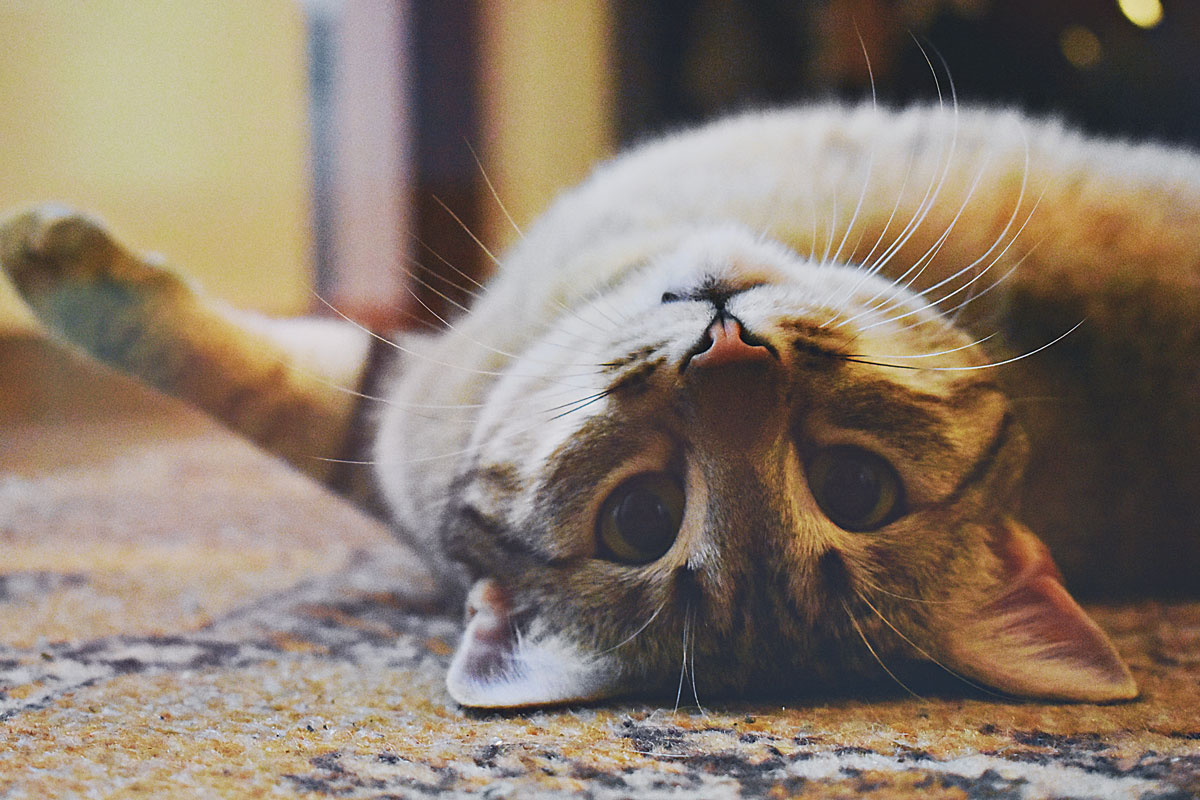
Photo Credit: Dids via Pexels
2. Caring for an older cat is easy.
Conversely, kittens tend to be messy. Keen curiosity drives them to investigate their surroundings, often with sloppy consequences.
Anything dangling can be viewed as a toy, such as drapery tassels, toilet paper, and household decorations.
While nosing intriguing things on tables and shelves, kittens knock them down. In the process of exploring, they leave you to clean up whatever they might drag, pull, spill, topple, chew, or tear.
Ah, but mature felines are laid-back. Keeping them happy is a cinch, especially those from shelters.
Just give your adopted cat the essentials — a cozy bed, scratching post, clean litter box, regular meals, a few toys, and gentle petting.
Also, play with them for brief periods, aiming for a total of 20 minutes daily. Then, to stay abreast of medical needs, schedule vet exams every six months.
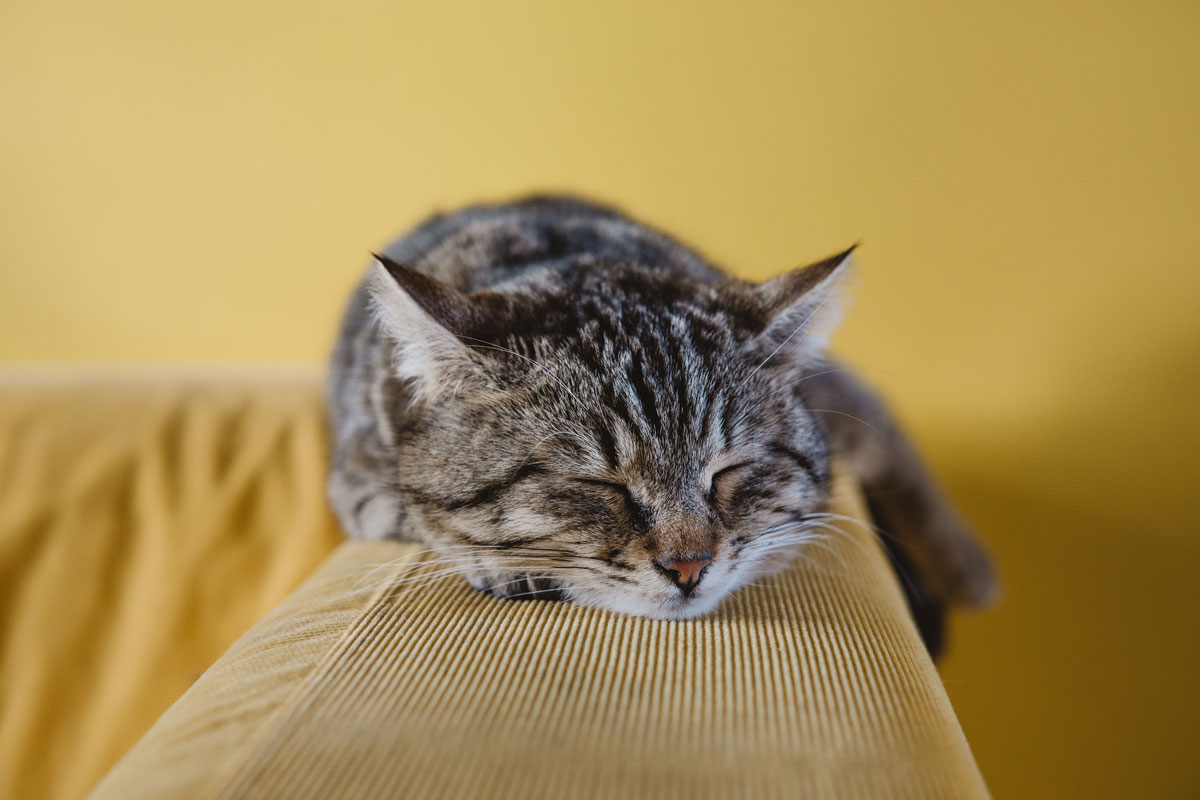
Photo Credit: Sabri Tuzcu via Unsplash
3. Mature cats are levelheaded.
Kittens often get themselves in a pickle. Being impulsive, they lack the foresight of older cats.
Consequently, kittens are more prone to accidents and injuries, such as ingesting toxic chemicals, falling from heights, and chewing electric cables. To prevent such disasters, you must kitten-proof your house and constantly supervise feline activity.
While kittens are adorable, their exuberance can fray your nerves, with their spurts of scampering, chasing, pouncing, and batting things around. In short, kittens are daredevils, giving no thought to the consequences of their actions.
However, older cats are more calculating and cautious, having survived the hazards of kitten-hood.
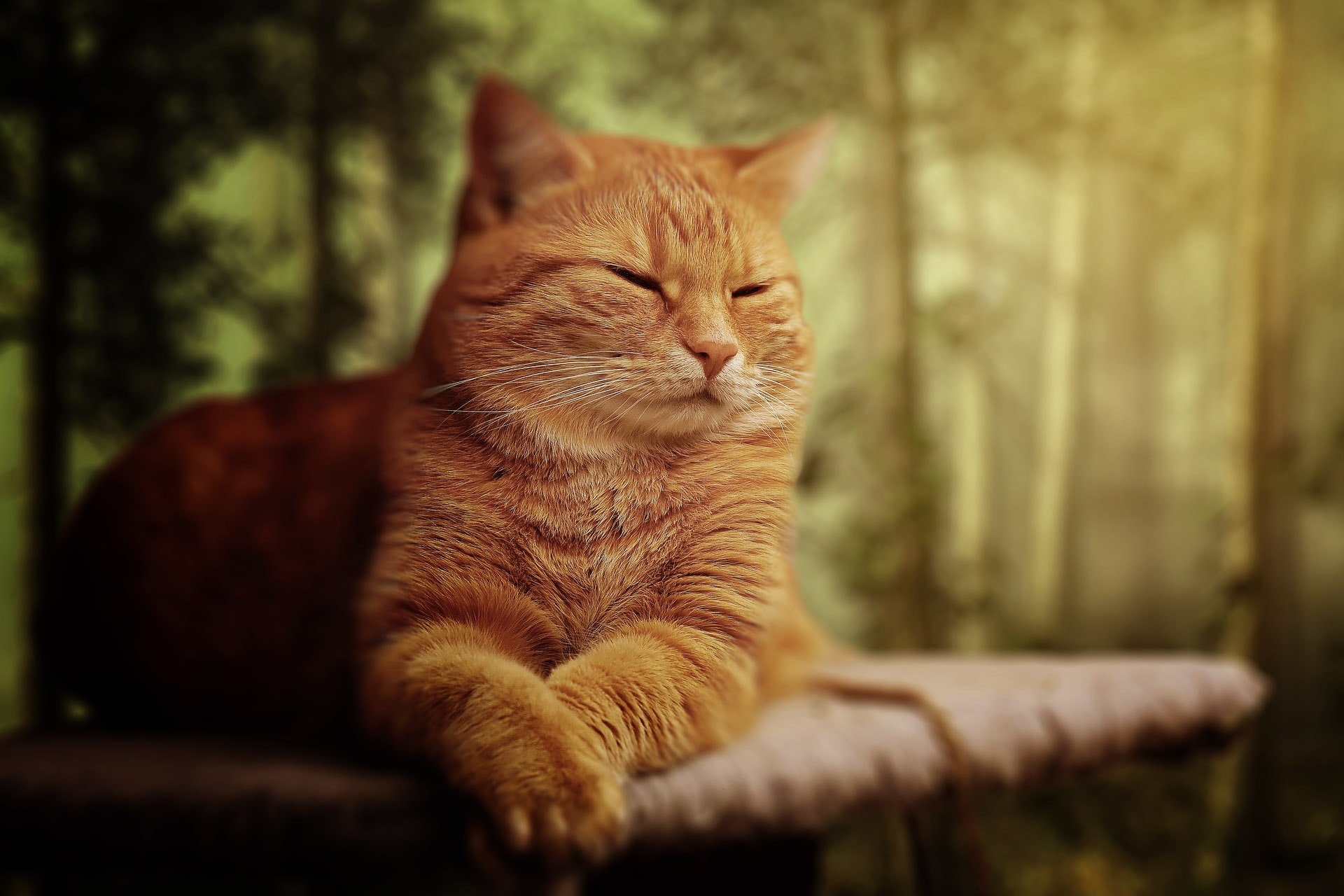
Photo Credit: Pixabay via Pexels
4. Like fine wine, cats get better with age.
Felines who were feisty in their youth turn mellow as they mature. Over time, a once shy feline gains confidence, becoming friendlier. A previously aloof cat now seeks companionship.
Plus, senior cats have good manners. Whereas a kitten won’t hesitate to claw your furniture, an older cat knows better, using the designated scratching post for self-pedicures.
Since older cats are low-key and gentle, they love to cuddle and nap. That’s not to say they don’t like to play. Interactive toys are favorites!
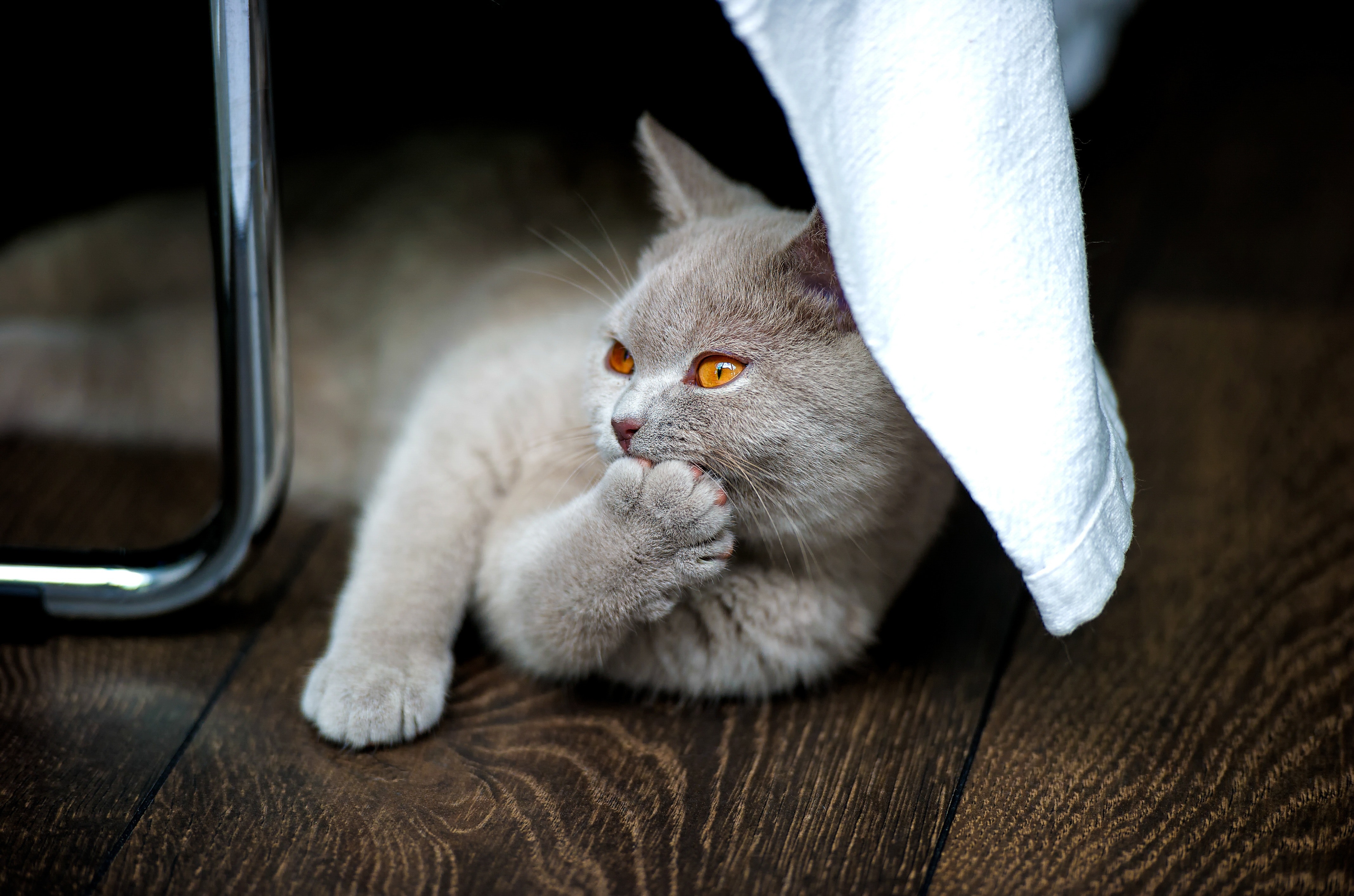
Photo Credit: Pixabay via Pexels
5. Senior cats are adaptable.
Kittens require ongoing socialization, which is fine if someone’s always around. However, when left alone, baby cats don’t fare well.
Frequently, kittens channel their anxiety and insecurity by marring furnishings. Then, when folks return, they get clingy, sticking to them like glue.
However, mature felines can manage your absence and varying household activity. After your adopted cat settles in with you, they’ll quickly adjust to your lifestyle.
For example, although felines are nocturnal, senior cats subdue their night owl tendencies, turning in when you do. Kittens, however, stay wide awake, tackling your toes through the bed covers and keeping you up, too.
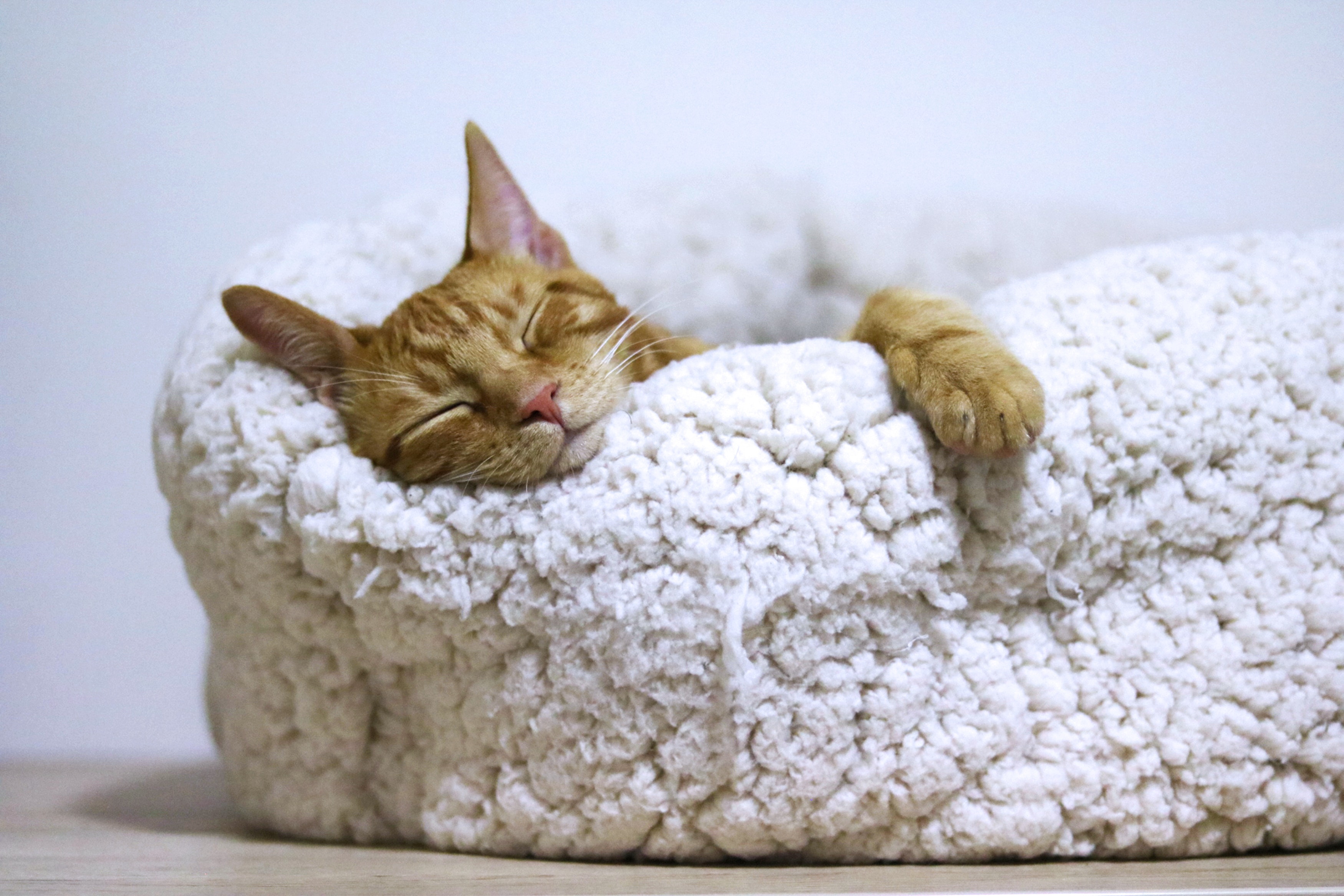
Photo Credit: Aleksander Cvetanovic via Pexels
6. Training is a breeze.
Generally, senior cats are polite and respectful, schooled in household etiquette and rules. Still, if any behaviors need changing, just use positive reinforcement, such as encouragement, treats, petting, and praise.
Since mature cats are attentive, they learn your wishes quickly. Plus, with peace being paramount to adopted cats, they’re motivated to please.
However, kittens are challenging to train, having short attention spans. To teach desired behaviors, you must invest considerable time, energy, and patience.
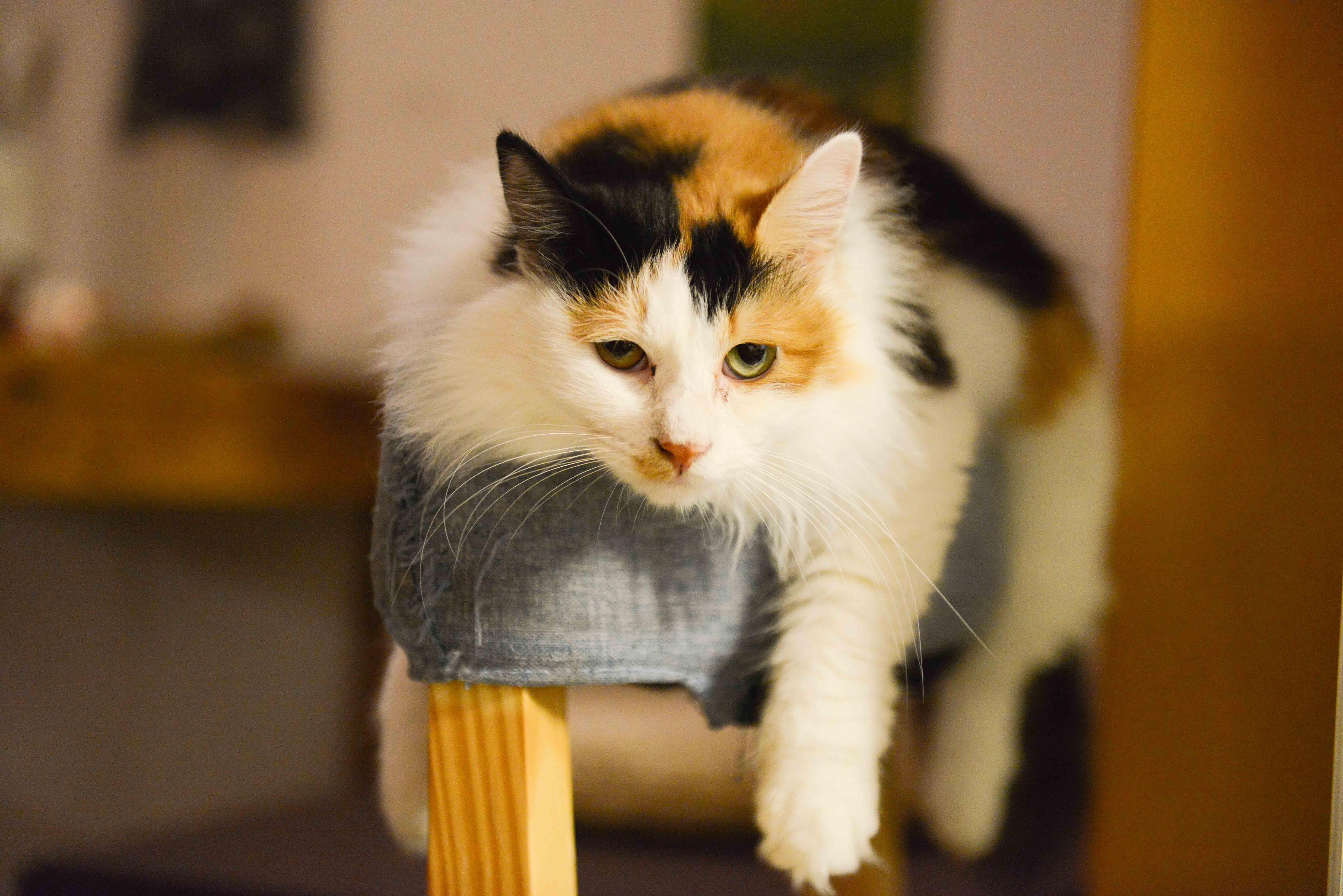
Photo Credit: Buenosia Carol via Pexels
7. Mature cats are great for kids.
If you have young children, kitten-inflicted casualties can result, with rough treatment prompting biting and scratching.
Even if you demonstrate proper cat-handling to tykes, they don’t have the fine motor skills to comply. At the same time, kittens are delicate, readily hurt by zealous hugging and play.
Senior cats, with their easygoing natures, tend to be more tolerant of kids. They’re also sturdier than kittens.
By adopting a mature cat, your kids benefit tremendously! Through contributing to its care, even in small ways, children’s cognitive abilities are strengthened, such as memory, planning, organization, and concentration. When kids know you’re counting on them to help, they develop responsibility.
Here are additional ways children profit from having a cat.
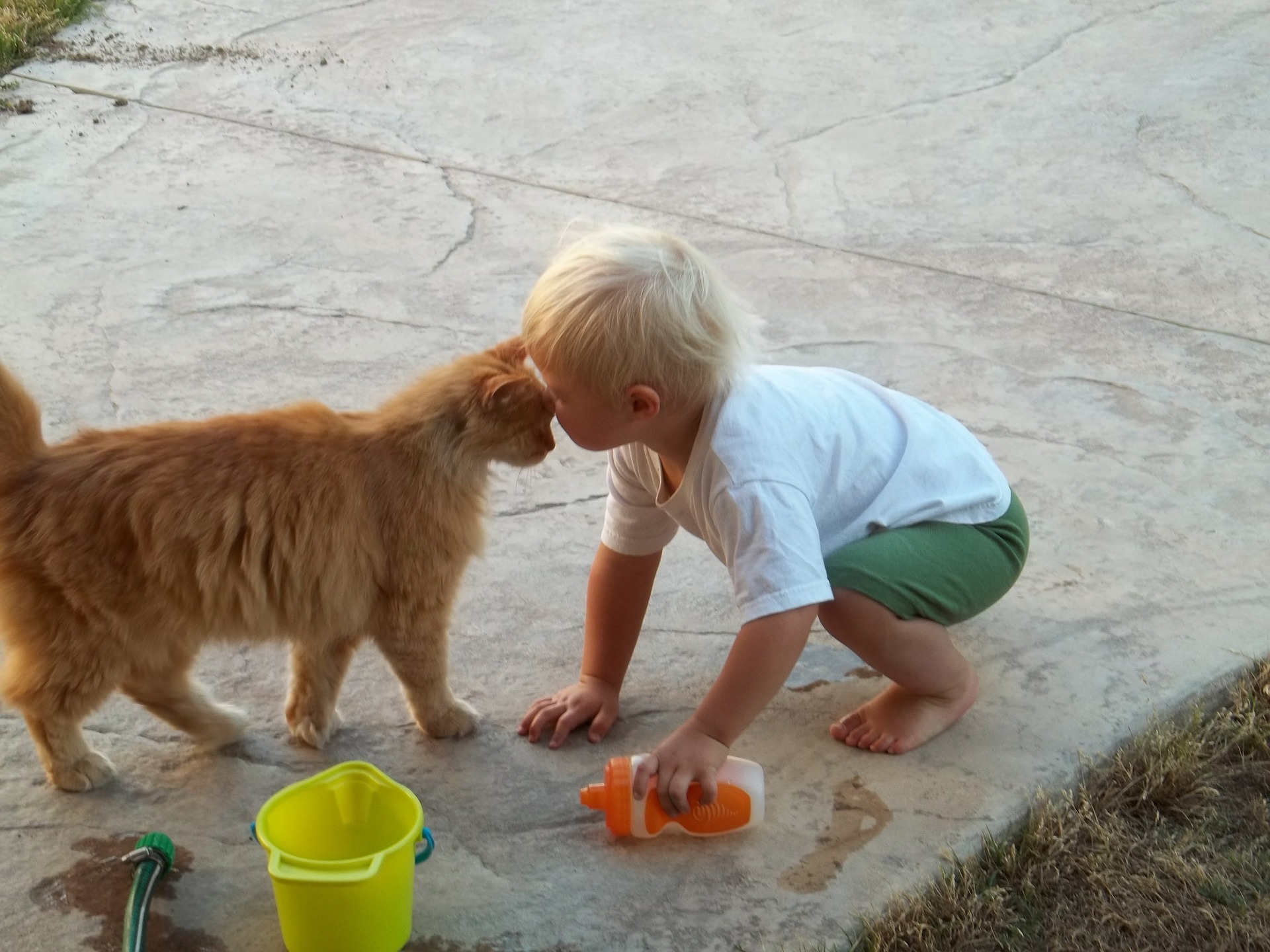
Photo Credit: gomopix via Pixabay
8. Senior cats pair well with other felines.
As I mentioned at the beginning of this post, if you have a cat for whom you’d like a pal, consider an older feline. If your resident cat is an adult, a lively kitten may be seen as a pest. However, your cat will likely bond with a senior feline, provided you introduce them slowly.
When visiting an animal shelter, explain to the staff why you wish to adopt. Be sure to describe your cat’s personality and energy level. Providing this information boosts the prospect of finding an ideal match.
Typically, rescue organizations have communal rooms, housing cats who get along well. So, a multi-cat room is a good place to start a shelter tour. If you’re drawn to a particular kitty, ask for its personal history. If the cat doesn’t sound compatible with yours, the staff can guide you to other possibilities.
Upon bringing your new cat home, introduce it to your other one cautiously, by degrees. To foster a smooth transition, follow these steps by PetMD.
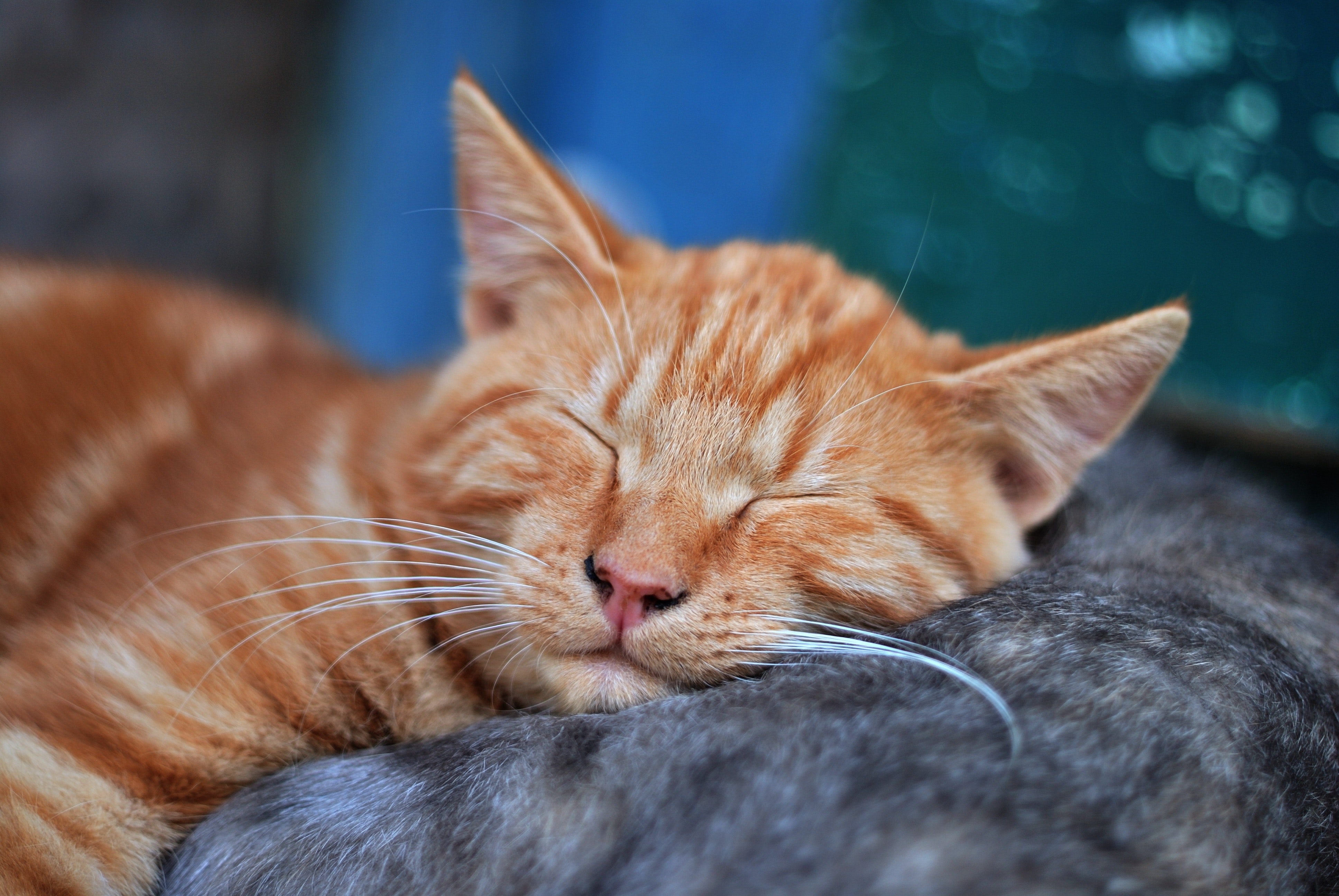
Photo Credit: Pixabay via Pexels
9. Mature cats are best for senior citizens.
Since older felines are small and easy-care, they’re well-suited to the elderly. Unless a person is frail, they can likely manage the tasks of cat feeding, grooming, cleaning a litter box, and daily playtime. For a person with reduced mobility, pole toys are perfect, enabling interactive play from a chair.
Mature felines make wonderful lap cats for senior adults! For those living alone or with little social contact, feline affection wards off loneliness and depression. The responsibility of cat care creates pleasant routines and meaningful activity. It also eases arthritis by improving joint flexibility and muscle tone.
Meanwhile, the stress-melting effects of cat ownership lower blood pressure and heart rate. Likewise relaxing is gazing at a snoozing cat. Some feline poses are hilarious, giving daily doses of smiles and laughter, the best medicine!
Here are more reasons why mature cats are optimal for senior citizens.
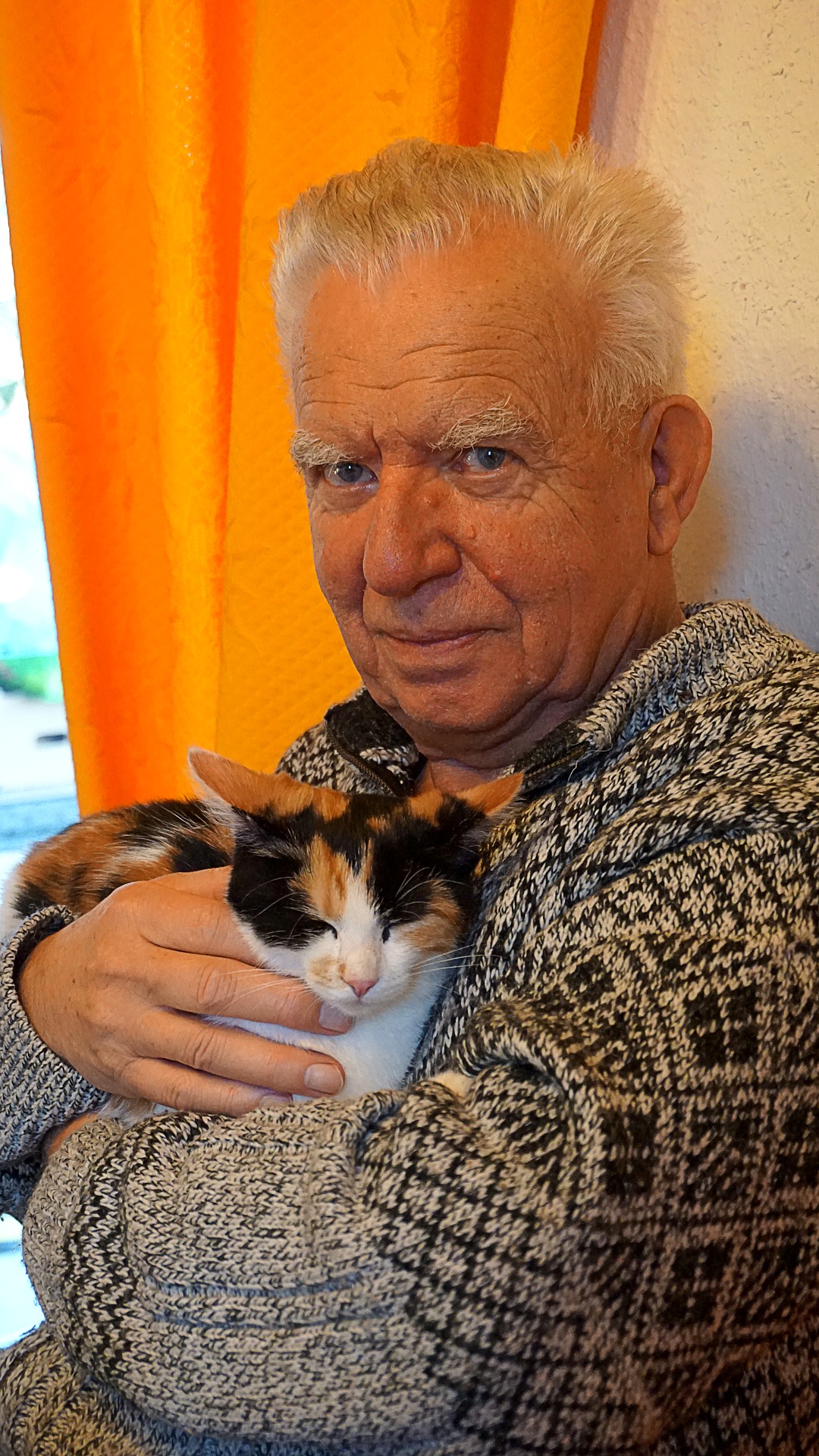
Photo Credit: Alexandra_Koch via Pixabay
10. Older cats show gratitude for being adopted.
Just imagine the trauma of cats who land in shelters! Many felines lose their owners to moving, new babies, divorce, or death.
Sometimes owners reluctantly give up their cats after pay cuts or job loss, having less money for pet care. Frequently, irresponsible people abandon their cats to the streets, where they barely survive until saved by rescue organizations.
Now, picture the response of a shelter cat when you adopt them.
“Wow, you want me? Oh, I’m so relieved and happy to have a home again. I can’t thank you enough. I’ll love you always!”
And so, you start a new life together, equally thankful for the special bond you share.
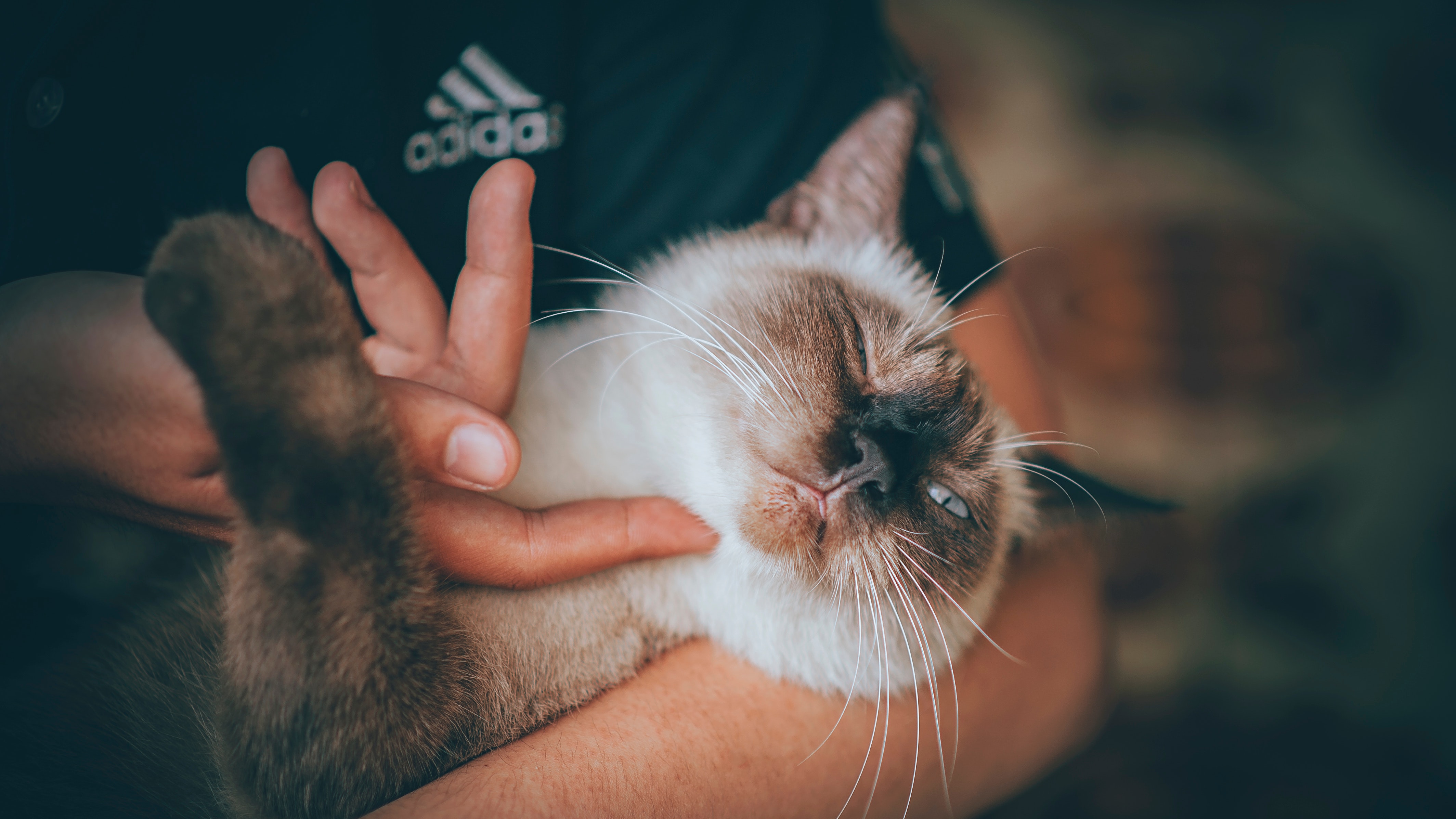
Photo Credit: Min An via Pexels
Shelter Support
Many shelters promote senior cat placements by waiving their adoption fees. Typically, the cats are already spayed or neutered, vet-examined, treated for worms and fleas, and microchipped, at no cost to adopters.
If a senior cat wins your heart and the shelter covers all adoption costs, consider making a donation. Aside from money, you can offer pet toys, bedding, food, cat litter, or other pet supplies. For more heartwarming ways to help your shelter read our When We Dare to Care article.
Sweet Seniors
Let’s envision what you gain by adopting a senior feline.
You acquire a loving and loyal companion, fully mature, with a known personality. Your adult cat is well-mannered, readily adapting to your lifestyle. Any new behaviors you want to instill are easily achievable.
Caring for your pet is simple and fun. Unlike with a kitten, your household possessions stay intact.
If you’re a senior citizen, through pet care, you see improvements in your physical, emotional, and mental well-being. If you have children or another cat, they adore the wonderful newcomer to the family.
Above all, you have the lasting joy of saving a homeless cat, with so much love to give.

Carol
January 30, 2019 at 1:34 PMI rescued a 15 year old cat (in kidney failure) two years ago. He is such a love bug! Recommend this to everyone.
Debbie
January 30, 2019 at 6:01 PMI couldn’t disagree more! Senior cats are just as bad as kittens. They can just get into bigger messes!!
Casey
February 28, 2019 at 1:09 PMOh come on! This is to help Senior Cats get adopted and you want to put out some unfounded words just to get out your negative comments? I can tell you without a doubt that Senior Cats are awesome. Everyone knows that younger animals as well as younger humans are harder to take care of. That’s not to say that young cats aren’t awesome to, but Senior cats seem to want to love on you even more and they tend to want to hang around you even more. I like the yound ones too b/c they are fun to watch and they love too, but there’s no reason to put anything negative out there.
Sharon Young
January 30, 2019 at 10:10 PMGreat article about older cats who need a loving place to retire 😉 I’ve had kitties since I knee high to a grasshopper ☺ now, it’s my only son who saved many felines. He saved a Siamese kitty whose now 16yrs, old. I’ve kept his other Orange female tabby who I had to say a very heart wrenching farewell to because her kidneys failed after being my companion of 15 years🐱 now I have 4 felines in my home.. We saved a female feline who was pregnant. She had 6 babies. ..I kept 2 because they need each other for company when I’m out doing business. I had told myself that I would the next time I had a pregnant feline.. so I kept my own promise and my
1 yr. kitties are crazy😆 people need to consider themselves as keepers of all our furry friends.
Diane
January 31, 2019 at 11:51 PMI disagree. I’ve had plenty of cats of all ages thru the years and mature kitties make much better pets than do kittrns! Without a doubt!
Linda
February 2, 2019 at 4:23 PMI love all cats. I have five senior cats and they are lovable and we’re all adopted from the Humane Society. They are warm and loving. I have two other cats that are about eight years old and are wonderful. I had two 16-year-old cats that I adopted but both died within a year of each other from strokes. They lived with me two years before their strokes.
Connie Bongiorno
February 3, 2019 at 10:32 AMI adopted a 10 year old female cat, she had lost two previous male owners by death and had spent 2 years at a rescue center I brought her one and ave nurtured and loved her for three years. She was going to be euthanized because she was over weight, 10 years old and had a kidney problem. She is doing great but is not affectionate at all. . Can pet her but other people must be very careful, and I warn them that she will hit. Not me anymore . She is beautiful.. black and white. I am so hoppy I have been able to give her three happy years. Her name is Booboo an she is precious.
J. Schilling
February 5, 2019 at 5:18 PMI have a now senior cat that was feral. When he appeared in my yard his body language was “I want to be friends, but I am soooo scared.” It took me 3 months to tame him. I took a long piece of bamboo and taped a spoon to the end. Used the cheapest grade humans tuna, and when he sat on the fence I slowly approached with food extended. Over 3 months, I shortened stick until I could get a finger on his head. He jumped into my arms. As soon as he was old enough, had him vetted and neutered. That was over 12 years ago and he is my purr baby. Two years ago, after my other cat crossed the Bridge, I adopted a 2 year old female tortie. When I went to the shelter, I asked for the cat that had been there longest. Beautiful Sadie had been there over a year, so she came home with me. She is pretty aloof. Likes to be in same room with me and sleeps on my bed, but she’s not a lap cat, which I guess is a trait of torties. Both cats are in and out cats, but Sadie is the Mighty Hunter. My neighbors have chickens and Sadie cztches mice galore. I often find her gifts on my door mat. I cannot imagine life without a cat nearby. Many of my neighbors have intact females, so I dread kitten season.
If you’re on this site, you are probably a responsible pet owner. Remind everyone, spay or neuter.
S
June 7, 2021 at 2:26 PMI absolutely ADORE my little old man! He has a “real” name but only answers to Grandpa 🙂 I found him outside a couple of years ago, fully declawed (read: no claws on any of his feet, so he couldn’t even hunt or defend himself!) and starving. He started warily trotting away when I first approached him, but as soon as I gave a little *click click click* he did a 360, bolted over, and flopped over on his back! I scooped him up and he nuzzled right into my shoulder, purring like crazy, like he knew everything was finally going to be ok. He had no chip, and we posted and called around, but no one claimed him. He was already pretty old (vet estimated 12-15) when we picked him up, and he’d definitely seen some rough times, but it didn’t take him very long to settle in with us and become accustomed to being spoiled. He’s so chill and wants nothing more than snacks, naps, and snuggles. I am just so thrilled to have him. I understand it’s a little scary to adopt an old pet because you know you won’t have as many years with them as you would with a baby, but they call them “golden years” for a reason!!!! ♥♥♥♥♥